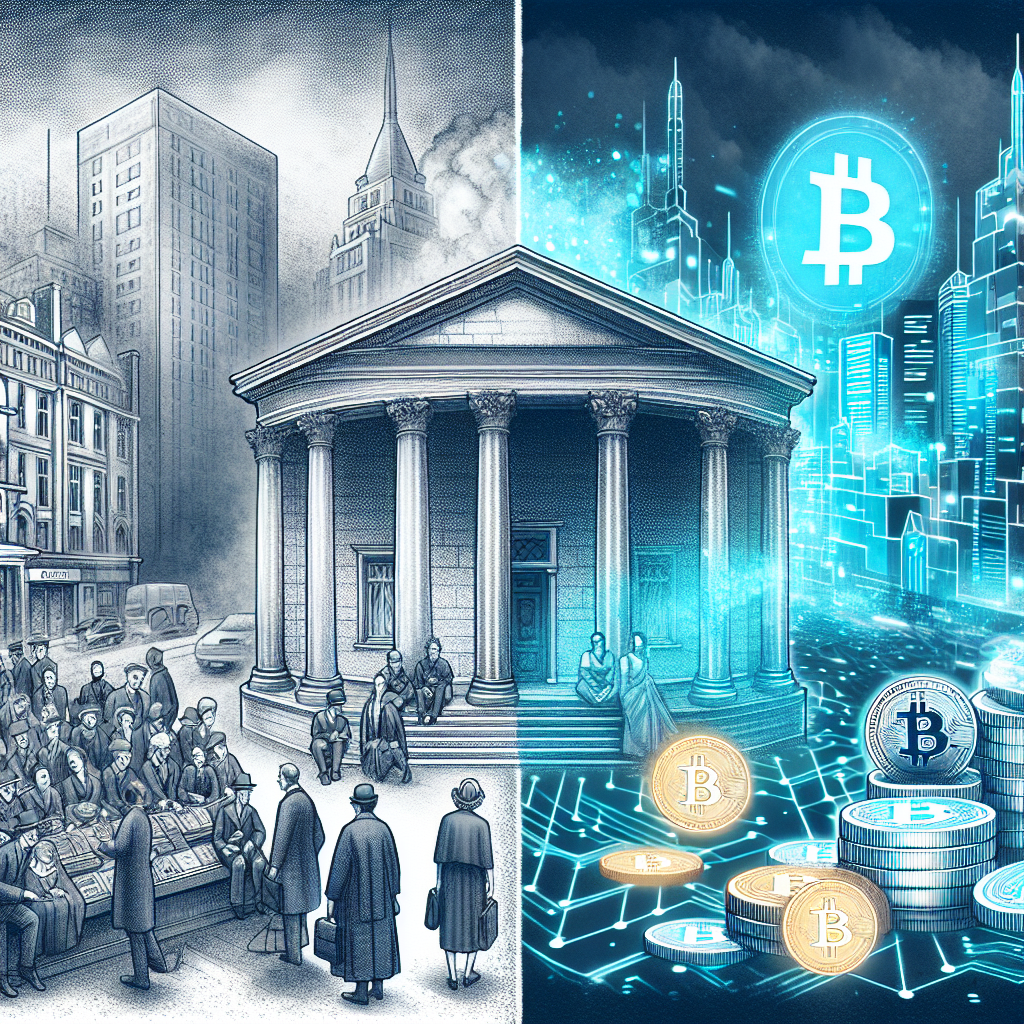Cryptocurrency and Traditional Banking: A Historical and Future Perspective
In recent years, the advent of cryptocurrency has set the financial world abuzz, challenging the very foundation of traditional banking systems. The journey of financial evolution is a fascinating tale of coins, currency, and code. Today, we explore the historical transformation from conventional banking to digital assets and what the future may hold for these distinct worlds.
The Historical Context of Traditional Banking
Banking has been around for centuries, starting as a simple system of lending grains and eventually evolving into the intricate global networks we see today. The Mesopotamians were among the first to institutionalize banking around 2000 BCE, while the creation of coins in the Aegean civilizations in 500 BCE laid the foundation for monetary systems.
Fast forward to the Renaissance, and we see the rise of modern banks like the Medici Bank, which introduced double-entry bookkeeping, or as we may call it, the “Excel sheets of the past”. Over time, banking systems expanded to encompass global transactions, loans, savings, and investment services.
These traditional banks thrived on the principle of trust—after all, who wouldn’t feel secure giving their money to someone with a large building and even larger chandeliers?
Cryptocurrency: Revolutionizing the Financial Landscape
Enter cryptocurrency—a monetary system that threw the idea of tangible currency out the window faster than Bitcoin’s price changes. Satoshi Nakamoto’s introduction of Bitcoin in 2009 marked the dawn of decentralized digital currency, relying on blockchain technology to operate without central authority.
Unlike traditional banking, cryptocurrency offers enhanced security, lower transaction fees, and the allure of anonymity. Suddenly, financial freedom seemed possible without the middleman—no more queuing at banks or trepidatious calls to bank managers for loans.
- Bitcoin served as the genesis block of cryptocurrencies.
- Ethereum introduced smart contracts that automated and encoded financial agreements.
- Ripple (XRP) catered to the real-time gross settlement systems, making cross-border transactions as quick as sending an email.
Despite their benefits, cryptocurrencies are also notorious for their volatility—a single tweet by a tech mogul can send prices sky-high or crashing down, a volatility that traditional currencies look upon with a mix of awe and relief.
Where Crypto and Banking Might Coexist
In a world rife with innovation, the future of cryptocurrency and traditional banking might not be a tale of rivalry, but one of integration. Many banks have started exploring the potential of blockchain technology and cryptocurrencies to enhance their services.
- Some banks have begun offering crypto custody services, allowing clients to hold digital assets securely.
- Blockchain technology is being used to streamline back-end operations, reducing fraud and improving transparency.
- Collaborations between fintech companies and traditional banks are giving rise to novel financial products tailored for the modern consumer.
Indeed, knowledge is power, especially when keeping up with financial transformations. To remain updated on the latest economic trends, you might explore the Top Economics Telegram Channels. Merging traditional banking insights with cryptocurrency developments, these channels offer a panoramic view of financial shifts.
The Future: A Question of Balance
As we navigate the uncertain waters of financial evolution, the burning question remains: Will traditional banks adapt to this new digital era, or will cryptocurrencies take over the reins completely? Only time will tell. One thing’s for sure—whether you’re team crypto, team traditional banking, or team-let’s-just-hide-money-under-the-mattress, the metamorphosis of finance is a journey worth watching.
In this economy, both banks and cryptocurrencies need to ‘bank’ on their strengths and perhaps take a page from each other’s books—or blockchains—because, in the end, the ultimate goal is financial accessibility and security for all.
